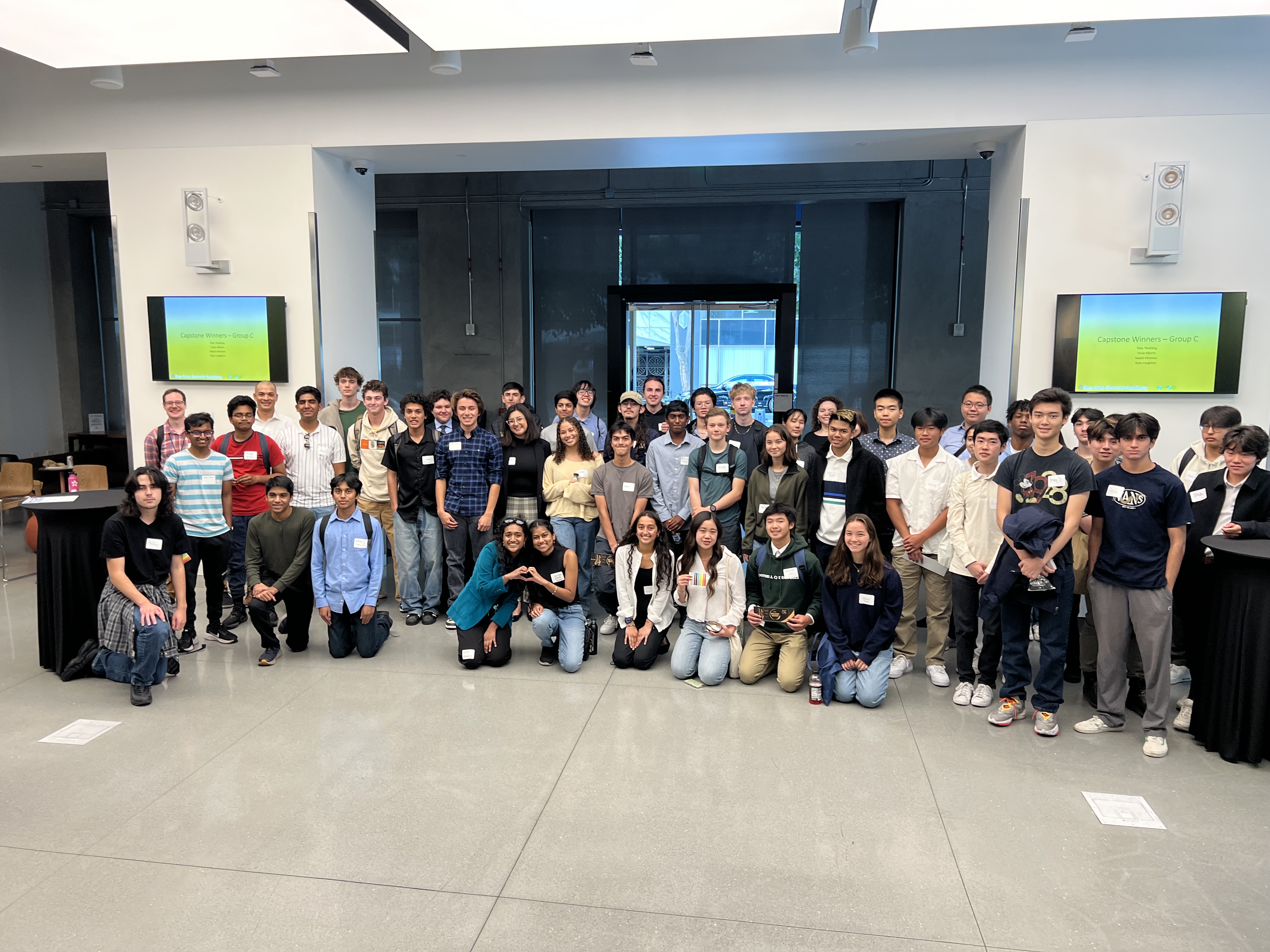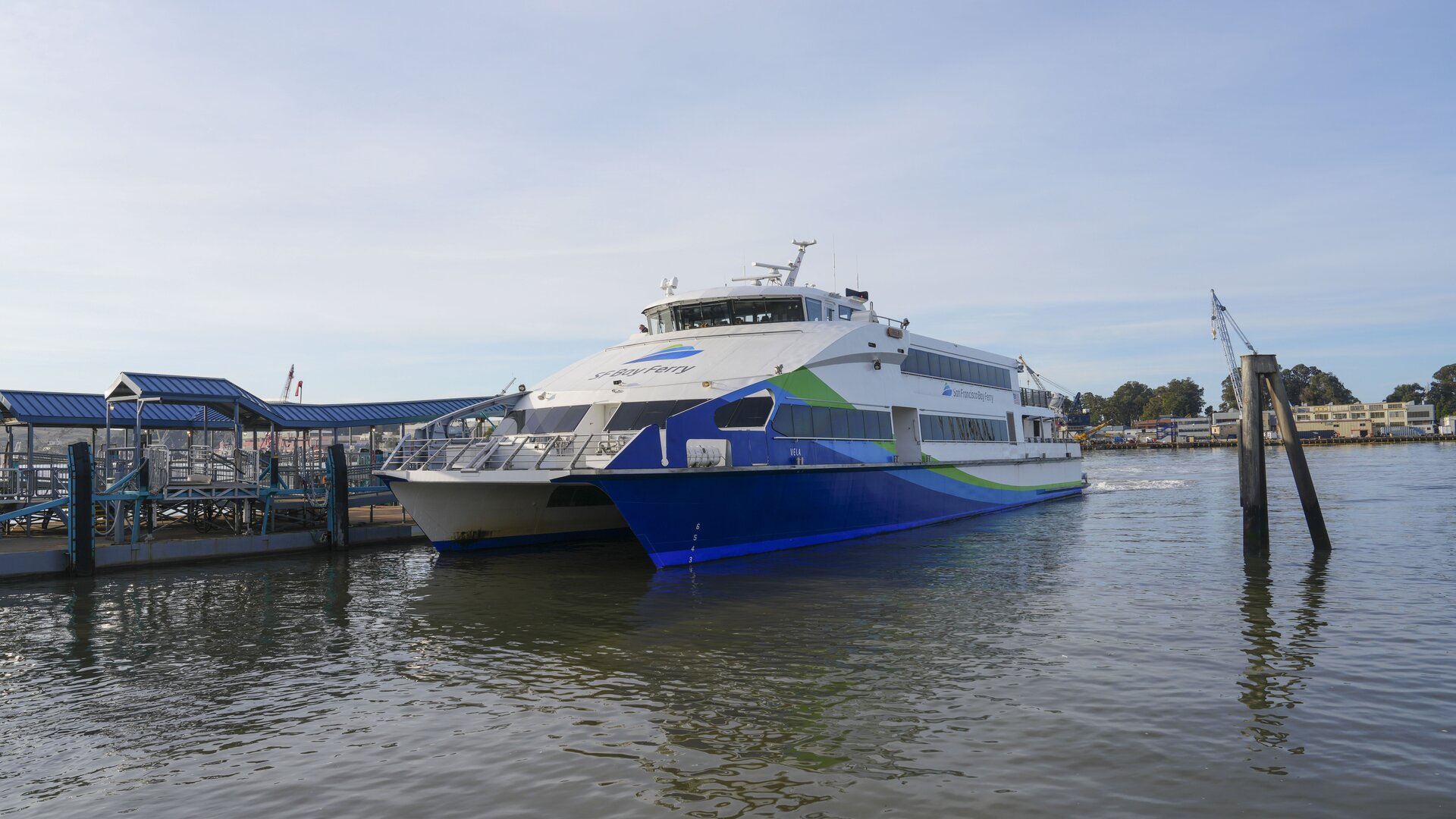San Diego Metropolitan Transit System Board Approves $243 Million Capital Budget for Transit Improvements
The San Diego Metropolitan Transit System (MTS) Board of Directors unanimously approved a $243.3 million capital improvement program budget for Fiscal Year 2025. This is the largest annual capital improvement program budget in the agency's history.
“Prioritizing this capital investment in our transit agency will help increase ridership and keep San Diego’s transit system in good working condition with modern amenities and well-maintained vehicles,” said Stephen Whitburn, MTS Chair and San Diego City Councilmember, District 3. “This is the largest capital improvement program in agency history, and it speaks to our growth and the commitment our region has for transit.”
As part of the agency’s $243.3 million Capital Improvement Program budget, 78% will help maintain bus and rail systems in good condition, followed by facility and construction, rail infrastructure improvements, and other major initiatives. In total, 64 projects will be funded by the Capital Improvement Project. Top funding allocations include:
- $69.5 million – Rail infrastructure improvements and maintenance.
- $58.3 million – 38 new buses including 10 battery-electric and 28 compressed natural gas.
- $38.8 million – Overhead charging infrastructure at each existing division to support conversion to an all-electric bus fleet.
- $21 million – 22 new Trolley vehicles. Funding will be added to the $71.7 million previously funded to replace aging vehicles in the fleet.
- $21.3 million – Trolley and bus facilities maintenance and construction, and construction projects for passenger facilities at transit centers.
Santa Cruz METRO Welcomes Corey Aldridge as New CEO 
The Santa Cruz Metropolitan Transit District (METRO) welcomed new CEO, Corey Aldridge, to the agency. Aldridge’s tentative start date with METRO is Monday, April 29, 2024.
"I'm excited to announce that Corey Aldridge has been chosen as the new CEO of Santa Cruz METRO Transit District,” said Kristen Brown, METRO Board Chair. “After a rigorous nationwide search, Corey emerged as the ideal candidate, bringing over a decade of successful leadership, including his current role as CEO of Mountain Line Transit in Missoula, Montana. Corey's experience aligns perfectly with our ongoing initiatives like Reimagine METRO, and his track record in overseeing ballot initiatives, implementing green projects, and fostering ridership growth will be invaluable. We look forward to having Corey's leadership at METRO."
CEO Aldridge has been a General Manager in public transit for over a decade. His most recent experience as CEO of Mountain Line Transit in Missoula, Montana, focused on overseeing a successful ballot initiative process, implementing zero-emission vehicle procurements and infrastructure projects, implementing a free fare program, obtaining sizable state and federal grants, successful ridership growth initiatives, implementing strategic planning and rebranding initiatives, and leading transit-oriented developments. Additionally, Aldridge has a track record of building trusting relationships with employees, unions, leadership, and the community resulting in collaborative and inclusive partnerships.
Corey Aldridge, incoming CEO of Santa Cruz METRO, expressed his enthusiasm and vision for the role: "At the heart of every successful transit system is its people—both our employees and the community we serve. As the new CEO of Santa Cruz METRO, I am committed to fostering a work environment where every employee feels valued, supported, and empowered to excel. Moreover, I look forward to being an active part of the Santa Cruz community and continuing the great work already underway at METRO and beyond. Our collective success hinges on our ability to work as a unified team dedicated to serving our community's mobility needs, ensuring we not only meet but exceed the expectations placed upon us. Together, we will drive forward to a future where public transportation is not just a service but a pillar of community strength and environmental stewardship."
While CEO at Mountain Line Transit, Aldridge launched a 30% increase in service, after a successful ballot initiative, and secured almost $40 million dollars in federal funds for the construction of a new maintenance, administration, and operations base, paving the way for future growth and service enhancements for the agency. This led to the agency being awarded the American Public Transit Association’s System of the Year Award for North America in 2021.
Metropolitan Transportation Commission: Attention High School Students, Summer Sessions Guide Future Leaders 
Bay Area high school students are invited to apply to the Norman Mineta Bay Area Summer Academy, a five-week paid internship with the Metropolitan Transportation Commission (MTC), the Association of Bay Area Governments (ABAG), the Bay Conservation and Development Commission (BCDC) and the Bay Area Air Quality Management District (Air District).
The program kicks off at the Bay Area Metro Center on July 8, 2024, and over the course of the subsequent five weeks, students will learn how regional agencies deal with issues like environmental justice, housing and transportation equity, community health, and social justice. High school students are encouraged to apply before the application deadline on April 28, 2024.
MTC, ABAG, BCDC and the Air District are sponsoring the Bay Area Summer Academy to provide insights into how regional governments address these issues and how the public – including students – can help advance equity across the Bay Area.
Upon completing the Bay Area Summer Academy, students will receive a certificate to include in college, vocational and/or job applications.
Sacramento Regional Transit District Begins Development of Mobility Hubs to Help Connect the Community
The Sacramento Regional Transit District (SacRT) annouced the launch of a new innovative project aimed at enhancing connectivity and sustainability within our community. In partnership with the Sacramento Metropolitan Air Quality Management District (Sac Metro Air District) and Sacramento Clean Cities Coalition (Clean Cities), SacRT is embarking on the development of Mobility Hubs at three light rail stations.
This groundbreaking initiative was made possible through the receipt of $1.7 million in federal grant funding from the Joint Office of Energy and Transportation. Additionally, the Sac Metro Air District may contribute up to $3 million to further bolster the benefits and amenities of these Mobility Hubs, including enhancements such as landscaping, lighting, and other infrastructure improvements.
To kick start this project, the California Air Resources Board’s (CARB) Sustainable Transportation Equity Program (STEP) granted $500,000 for the creation of a Mobility Hub Implementation Plan, which will be led by Civic Thread. The SacRT Mobility Hub Implementation Plan will be a community-driven approach to identify and site which of SacRT’s light rail stations should be prioritized for inclusion in the Sacramento Region’s 52 mobility hubs. The first three pilot locations have already been identified as part of the partnership with the Sac Metro Air District and Clean Cities.
The Mobility Hubs will serve as vital community hubs, strategically located within disadvantaged neighborhoods, and will offer a multitude of transportation options aimed at reducing reliance on gas-powered and single-occupancy vehicles. Among the amenities provided at these hubs are EV carshare, bike and scooter share services, EV charging stations, carpool/vanpool connections, and electric microtransit shuttles.
“We are excited to embark on this journey toward creating Mobility Hubs that will serve as vibrant community centers, fostering sustainable transportation options and connectivity within our region,” said Henry Li, SacRT General Manager/CEO. “Through strategic partnerships and innovative solutions, SacRT is committed to enhancing the quality of life for all residents while leading the charge towards a greener, more equitable future.”
This pilot project represents the first phase of a larger mobility initiative led by the Sac Metro Air District, aiming to introduce up to 52 Mobility Hubs across the Sacramento region. Over a two-year period, SacRT will work on collaborating with EV vendors, acquiring electric shuttles, and engaging in extensive community outreach to gather input on the features and services desired at each Mobility Hub. The project is anticipated to kick-off in the summer or fall of 2024.
The goal is to develop, demonstrate, and document the benefits, effectiveness, and sustainability of e-mobility hubs, with a focus on providing zero-emission equity for disadvantaged communities.
San Francisco Bay Ferry Secures $3 Million in Federal Funding for Vallejo Terminal Project 
San Francisco Bay Ferry announced that it has secured $3 million in federal funding for the Vallejo Ferry Terminal Reconfiguration Project.
The funding is included in the Consolidated Appropriations Act of 2024, passed by Congress and signed by President Biden in recent days. Funding for the project was secured thanks to support from Congressman John Garamendi, who represents Vallejo, Senator Alex Padilla, and the late Senator Dianne Feinstein.
The $16 million Vallejo Ferry Terminal Reconfiguration Project will improve service reliability, operational efficiency, climate change resilience and the rider experience by redesigning and rebuilding a key terminal on SF Bay Ferry’s most popular route. The new design will reduce the need for expensive dredging in the Napa River and minimize passenger disruption during tide events.
“This federal investment will save the public money over the long term and enhance a critical transit option for the people of Vallejo and surrounding communities,” said Pippin Dew of SF Bay Ferry’s Board of Directors. “Thank you to Congressman Garamendi for being a champion of water transit on Capitol Hill. We also share our gratitude with Senator Padilla and the late Senator Feinstein for prioritizing this important Bay Area project. I want to thank Senator Laphonza Butler, who has carried the torch of Senator Feinstein with grace and enthusiasm. Finally, thank you to the entire Bay Area Congressional Delegation for believing in the power of transit to connect communities and prioritizing it at the federal level.”
SF Bay Ferry is currently working with the City of Vallejo and partners on design and permitting for the project, which would relocate the ferry dock further into the Napa River at the same location in the heart of downtown. Construction could begin as early as 2025.
Due to accelerating silt build-up in the Napa River since the closure of the Mare Island Naval Shipyard in the 1990s, the required dredging frequency of the ferry basin at the Vallejo terminal has increased dramatically. SF Bay Ferry is now required to dredge in Vallejo every 18-24 months. Each dredging episode costs the agency approximately $2 million. As such, the reconfiguration project would save an estimated $21 million over the next 20 years.
Bay Area Rapid Transit Invites the Public to "Ride Through History" at a Legacy Car Retirement Ceremony and Final Ride
Bay Area Rapid Transit (BART) invites the public to join them as they mark and celebrate the end of an era: the last run of BART’s legacy trains composed of rail cars that have been serving the Bay Area for more than half a century. The event is called, “Riding into History: Final Run of the First Fleet.”
The retirement ceremony and final dispatch of legacy trains will begin at 1pm on Saturday, April 20, at Oakland’s MacArthur Station. Following the ceremony, the public will board a legacy train and ride from MacArthur to Fremont Station, mirroring the initial service BART provided when it opened September 11, 1972. It’s a 45-minute trip that travels along approximately 24 miles of the original section of tracks. Every rider will need to pay for the ride with their Clipper card.
“These train cars are part of the history of the Bay Area,” said Bob Powers, BART General Manager. “While we are excited to modernize the system, we recognize the profound cultural importance of these cars, and we want to celebrate their rich history and give them a proper send off.”
BART is able to completely retire the legacy fleet thanks to the success of the Fleet of the Future project. 696 new Fleet of the Future train cars are now certified for service – that’s 30 more cars than the legacy fleet inventory. A total of 701 new cars are on BART property as of March 1, 2024, and twenty cars a month are now being delivered to BART – twice as many as when the new cars first began to be delivered to the Hayward test track in 2016.